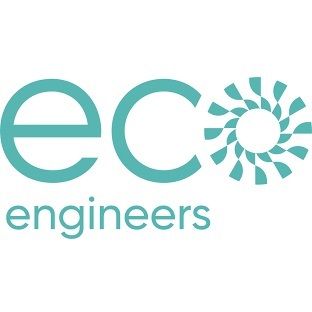EcoEngineers achieves milestone with Canadian CFR scope extension accreditation

April 22, 2024
BY EcoEngineers
EcoEngineers (Eco), a consulting, auditing, and advisory firm with an exclusive focus on the energy transition, on April 15 announced the expansion of its services in compliance with the Canadian Clean Fuel Regulations (CFR). After an intensive four-month period of ISO 14064-3:2019 training and aligning a cadre of life-cycle analysis (LCA) critical reviewers and specialists, Eco has been granted a scope extension by the ANSI National Accreditation Board (ANAB). This accreditation empowers Eco to perform CFR verifications for producers and importers looking to participate in the clean fuels market in Canada producing renewable, bio, and low carbon intensity (CI) fuels.
The Canadian government expects the CFR to drive significant economic opportunities in the development and use of clean fuels and technologies. CFR focuses on emissions throughout the life cycle of fuels, following similar approaches that exist in British Columbia, California, and Oregon. These jurisdictions have benefited from the expansion of clean technology industries because of these regulations.
Advertisement
Advertisement
In combination with the government of Canada’s $1.5 billion Clean Fuels Fund, the CFR creates incentives for the increased domestic production of low-CI fuels, such as ethanol. This creates economic opportunities for biofuel feedstock providers like farmers and foresters. It will also help Canadian fuel producers to compete in the rapidly expanding global market for clean energy.
“This expansion reflects our unwavering commitment to supporting sustainable energy solutions,” said Shashi Menon, CEO of Eco. “We are dedicated to aiding businesses in meeting the stringent environmental regulations set by the Canadian government.”
Eco’s accreditation (Accreditation ID: ECOEN 9159) for greenhouse gas (GHG) verification standards is extended to the verification of applications and reports under the CFR for renewable, bio, and low-CI fuels. The scope extension, effective as of March 22, 2024, adds to its initial accreditation as a GHG verification body in accordance with ISO standards ISO/IEC 17029:2019, ISO 14065:2020, and ISO 14064-3:2019 with specific scope accreditation for verification of assertions related to GHG emission reductions and removals at the project level for project activities under ANAB scope 01 GHG emission reductions from fuel combustion.
Advertisement
Advertisement
“The world is relying on market-based mechanisms to find a solution to the emissions problem and the climate problem,” said Menon. “In this context, there is a need for solid methodologies and reliable verification services to ensure the systems we put in place over the next decade are robust and will deliver the results we seek. ISO standards are emerging as the de facto global accepted standard for verification of environmental attributes to help structure sustainable financial market and create the trust and confidence that investors need. One great example of this is our recent work with Red Trail Energy.”
Link here for detailed information on the accreditation and services offered by Eco, or visit www.anab.org.
Related Stories
The U.S. EPA on July 8 hosted virtual public hearing to gather input on the agency’s recently released proposed rule to set 2026 and 2027 RFS RVOs. Members of the biofuel industry were among those to offer testimony during the event.
The USDA’s Risk Management Agency is implementing multiple changes to the Camelina pilot insurance program for the 2026 and succeeding crop years. The changes will expand coverage options and provide greater flexibility for producers.
EcoCeres Inc. has signed a multi-year agreement to supply British Airways with sustainable aviation fuel (SAF). The fuel will be produced from 100% waste-based biomass feedstock, such as used cooking oil (UCO).
President Trump on July 4 signed the “One Big Beautiful Bill Act.” The legislation extends and updates the 45Z credit and revives a tax credit benefiting small biodiesel producers but repeals several other bioenergy-related tax incentives.
CARB on June 27 announced amendments to the state’s LCFS regulations will take effect beginning on July 1. The amended regulations were approved by the agency in November 2024, but implementation was delayed due to regulatory clarity issues.
Upcoming Events










